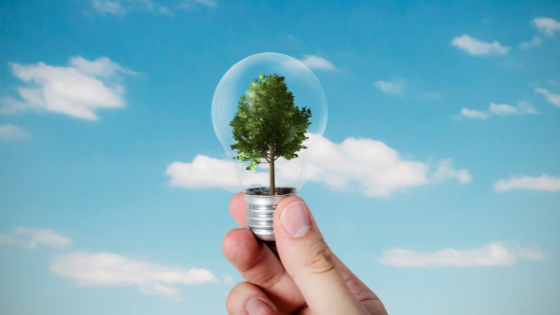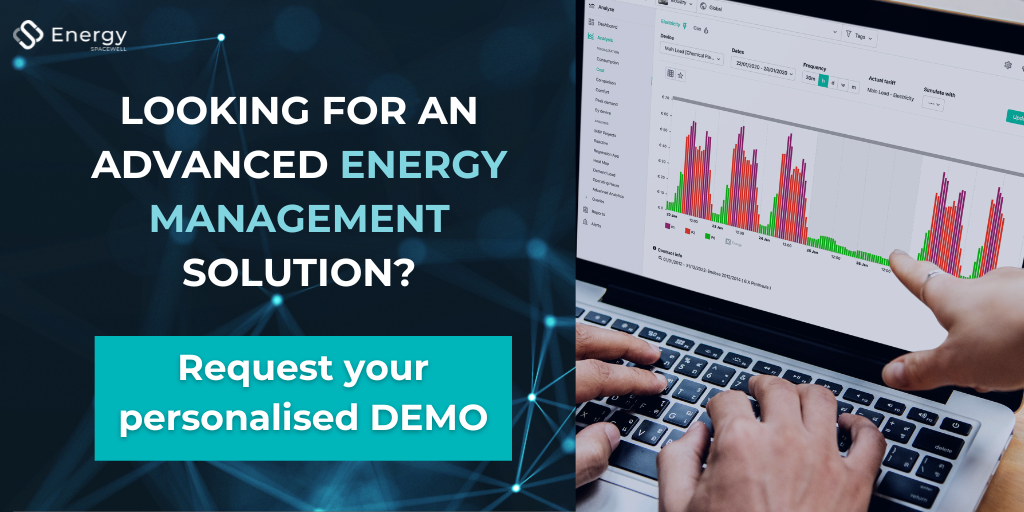Which are the Energy Efficiency facts everybody should know about?
The easiest way to understand how someone acts energy efficient is when they use less energy than someone ese, receiving the same service level. This concept is also known as efficient energy use, and its goal is to reduce the amount of energy required to provide products and services. A keyword for efficiency is Sustainable Energy. That is to say, all those systems that create energy through renewable sources would be sustainable.
When discussing energy efficiency we must mention the “Energy Hierarchy”. This hierarchy comprises several levels organised by the degree of priority. They are classified to assist progress towards a more sustainable energy system. The 2 highest priorities would be:
- energy saving
- energy efficiency
These two terms cover the prevention of unnecessary energy usage through improving the efficient use of resources and eliminating waste. The next priority on the scale is sustainable energy production through new resources. You’ve guessed right, we mean renewables. The lowest levels mainly talk about low carbon generation and emissions.
What does this theory tell us? Energy efficiency used to be one of the lowest priorities when energy was cheap and people were not generally aware of its environmental impact. The easiest example where we can see this fact is with incandescent bulbs. These were the most common used bulbs until the late 20th century. What people didn’t know is that they waste 90% of their energy as heat, whereas only 10% converts to useful light. Yet, nowadays energy efficiency is at the top of the hierarchy, and it’s reflected in noticeable technological advances like LED lighting, which are ten times more efficient than incandescents.
3 Real Life Examples to understand Energy Efficiency
Let’s put some common examples that will help us see what energy efficiency really means:
- You decide to replace your washing machine. We know it works with energy. If the new equipment you buy provides the same service but uses less energy, that is an energy-efficient action. You save money and your energy bill will be reduced. Or you will reduce the number of greenhouse gases going into the atmosphere. Or both. And the same happens with your computer, HVAC system or refrigerator.
- Changing a single pane window to double glazed. This window will prevent heat to escape in winter (again saving energy and staying as comfortable as before). The same in summer: this window will keep the heat out, you will not use the air conditioner as often, and you will end up saving energy and money.
- When you replace an incandescent lamp with a compact fluorescent lamp or LED, you are acting energy efficient.
Differences between Energy Efficiency, Energy Conservation and Sustainability
The concepts are similar and are sometimes used as synonyms, but they are not. Let’s take a quick look:
Energy Conservation
Energy conservation focuses on reducing demand. It is partially based on an energy culture, where the users are committed to only using the energy they need. We don’t mean having the lights off just because. But we do mean turning lights when no one uses a space, or turning off HVAC systems or leaving them in the minimum levels when spaces aren’t needed, for example in an office over the weekends.
Energy Efficiency
Energy efficiency is all about meeting your needs using the minimum energy possible. This includes being able to do more with the same amount of energy. You still use energy, but only what is really needed and avoiding waste. For example, you can maintain the services in your 10 offices reducing the amount of energy and hence achieving savings… or you can use that same amount to keep 15 locations up and running instead. Both are examples of energy efficiency.
Energy efficiency focuses on increased profitability, and increased profitability leads to growth. From an efficient perspective, you will save money. Thus, there is an economic interest behind carrying out efficient techniques, either if you do it in your business or at home.
The tricky part is that both concepts mean using less energy. However, energy conservation refers to those behaviours that result in not using energy at all, whereas energy efficiency exists as a way of being sustainable, saving energy, lower gas emissions and ultimately saving money.
Sustainability
Sustainability focuses on avoiding a negative impact on the environment. There is no interest behind it. In the business environment, sustainability is a term used to refer to social initiatives and commitment to the environment. A combination of being a responsible business and a reputation strategy.
A perfectly sustainable business would have zero waste and would require zero input outside of growth. However this is difficult in reality. Even renewable sources of energy generate some carbon emissions and waste in production of photovoltaic cells or wind turbines. This is a challenge being addressed every day by manufacturers, who also work on reducing their impact.
The 3 Energy Efficiency Facts
Let’s take a quick look over 3 important factors to understand why it has been growing in the last decade. We could call it as the 3 ingredients for an energy efficiency revolution:
- Technological improvement: new technology is developed every day and launched to the market. From IoT sensors and meters than need really little energy to large plants for renewables production to energy storage which still needs to grow further. There is a constant development of smart technologies that bring intelligence to energy management. What intelligence does to efficiency is helping and making sure appliances, equipment or facilities operate when it’s crucial.
- Integrated design: An integrative design is a method for designing buildings that develop a holistic design (systems functioning as wholes). This method can easily drive energy savings. New buildings are designed and built taking into account energy usage, whole life energy needs and even decommissioning and demolishing. This includes NZEB.
- Investment opportunity: the perspective taken for energy efficiency is long-term, but it entails a huge return on investment in the near future.
The energy efficiency revolution is already a thing and people need to be aware of what this revolution implies and how can it be achieved. There is no way of contributing to the world’s sustainability without being efficient. Thus, there is no way of being efficient without managing energy and using it properly.



